Average sizes and life expectancy for this breed:
For years, Yorkshire Terriers have remained one of the most popular and favoured dog breeds in the United Kingdom and globally. These sassy, fearless dogs make wonderful canine companions. They are known to be incredibly adaptable, so they can fit into any owner's lifestyle – whether you live in an apartment in the city or a house in the country. While small in stature, Yorkshire Terriers have big personalities, and they are always ready to take on adventures.
The Yorkshire Terrier, nicknamed the Yorkie, has a long silky coat and adorable pointy ears, making them one of the most attractive representatives of the dog world. They make sure to attract attention wherever they go.
The long steel-blue and tan coat may be the Yorkshire Terrier's crowning glory, but it’s their playful, charming personalities that genuinely endear them to their families.
Unaware of their small size, Yorkshire Terriers are big dogs in small packages!
See available puppies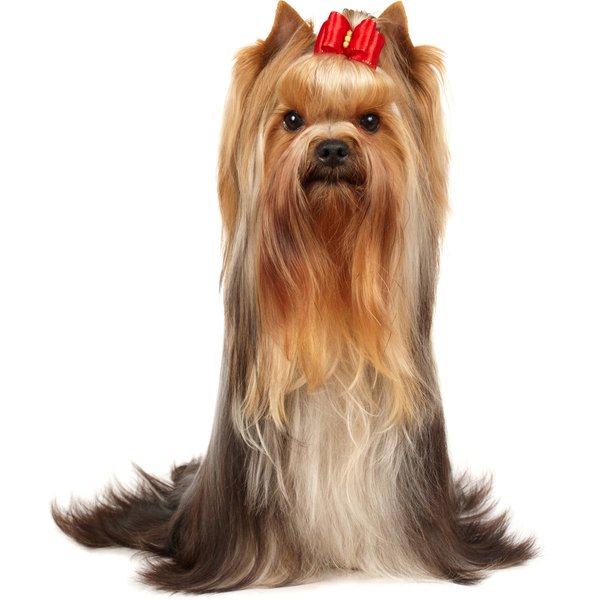

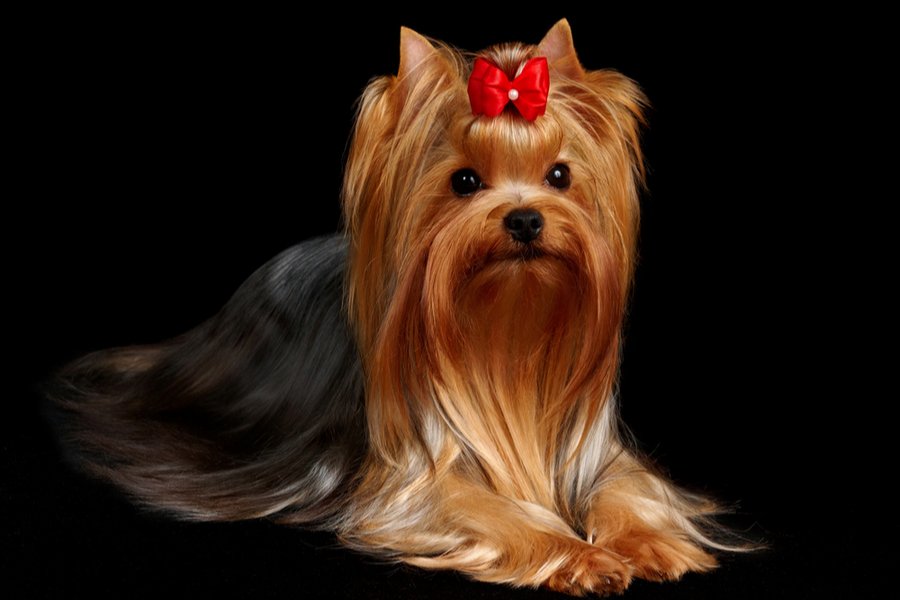


In the 1850s, Scottish Weavers crossed into Yorkshire and Lancashire, bringing their Skye, Clydesdale, and Paisley Terriers with them. Over time, these dogs were bred with local breeds, particularly the Otter Terrier and the Old English Terrier. This created the loveable Yorkshire Terrier we know and love today.
Yorkshire Terriers were bred and produced to be ratters. This characteristic is deeply rooted in their psyche and remains a dominant trait in their characters to this day. In the early years, they were utilized by working communities to delve into the smallest cracks and corners of textile mills to retrieve vermin. They were also used to hunt mice and rats in local coal mines.
In 1861, they were initially exhibited as Scotch Terriers, but later they were renamed Yorkshire Terriers thanks to the popularity of one individual named Huddersfield Ben. Over the years, this little Yorkie won over 70 dog show events and is considered to be the ‘father of the breed’. In 1874, The Kennel Club recognized this dog breed, and a year after, the club was first introduced and established. After some years, the American Kennel Club recognized it as a unique breed.
Yorkshire Terriers enjoyed their rising popularity until the 1940’s when interest in the breed began to drop. Fortunately, they found themselves back in fashion thanks to a Yorkshire Terrier named Smoky. She was found in a shell hole in New Guinea by American soldiers during World War II. Despite not understanding the language, she quickly became an integral part of the troop and a celebrity in her own right. Over the years, she accompanied the troops on over 150 air raids and 12 sea missions.
Today, this adorable dog breed is a popular family pet and companion in the United Kingdom and worldwide.
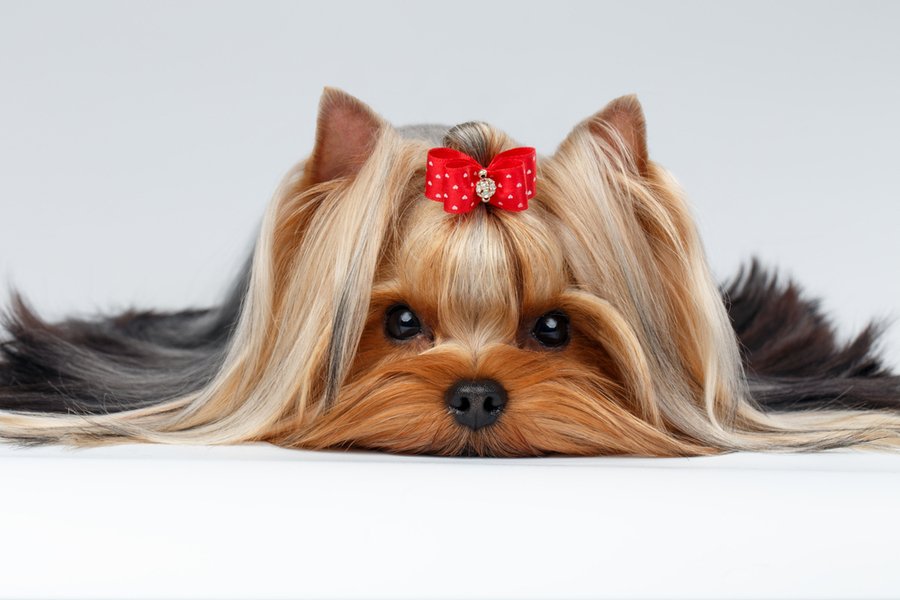
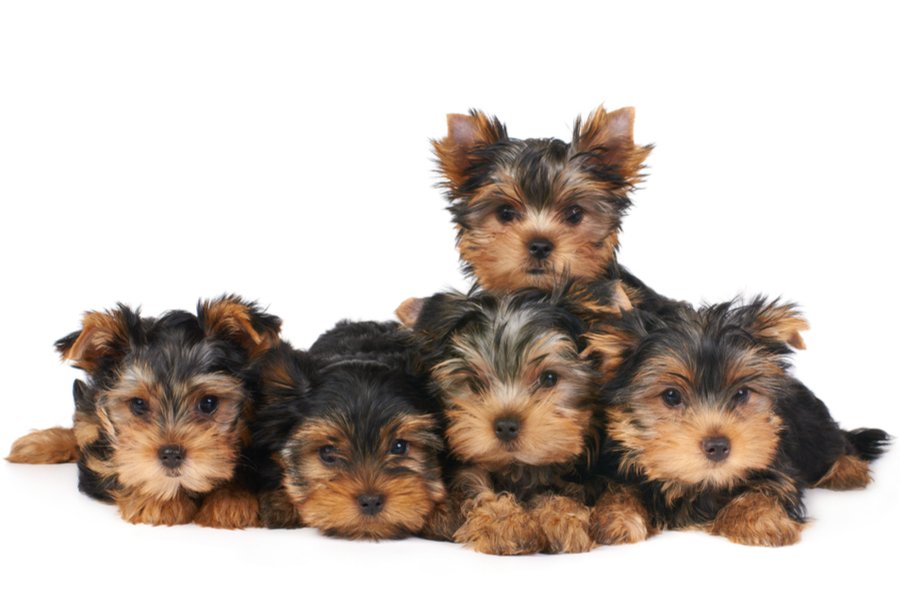
Yorkshire Terriers are smart, compact little dogs. They are well-proportioned with long, silky luxurious coats. Their heads are relatively small compared to body size, with a black nose at the tip of a finely boned and short muzzle. Their medium-sized eyes are dark in colour.
Their small, V-shaped ears are a deep rich tan colour, carried upright and covered in short hair. Yorkies have strong jaws with a perfect scissor bite. They have straight legs covered in rich golden tan hair that is lighter at the ends compared to its roots.
Their round feet are neat with black nails. Yorkies’ tails are covered with lush hair, which has a darker colour than the rest of the body. The tail is carried higher than the level of their backs which enhances their balanced look.
The Yorkshire Terriers’ coat is moderately long and very straight. It’s fine in texture and glossy. The hair on their heads is a golden tan colour, deeper on each side, around their ears, and on their muzzles, where it should also be long. The tan colouring on the head should not extend down to the neck and dark hairs should not intermingle with any of the tan colouring according to the UK breed standard.
The Yorkshire Terrier is ideal for first-time dog owners because they are highly intelligent and always eager to please. Although Yorkies can be overly bold and stubborn at times, they can adapt well to a range of living environments as long as they have received the appropriate amount of socialization as puppies. These dogs also tend to form very strong bonds with one person in a household in particular and can become very protective of them.
Yorkshire Terriers were bred to control vermin. This trait is deeply rooted in their psyche, which is why owners need to be careful about leaving these dogs with smaller companion animals. They may be viewed as fair game! These dogs also tend to be extremely territorial and will secure what is theirs without any hesitation.
Yorkshire terriers love the sound of their own voice and will bark at almost anything and everything. However, this trait can be corrected with positive reinforcement training when they are still puppies. These dogs will not hesitate to warn you that a stranger is approaching the house, so they make great watchdogs.
Smart and self-assured, the Yorkshire Terrier is a mixture of adorable charm and an adventurous terrier spirit. The breed shows a range of personalities. Some are cuddly and perky, wanting nothing more than to follow in their owner’s footsteps throughout the day. Others are mischievous, outgoing, and get into all sorts of trouble!
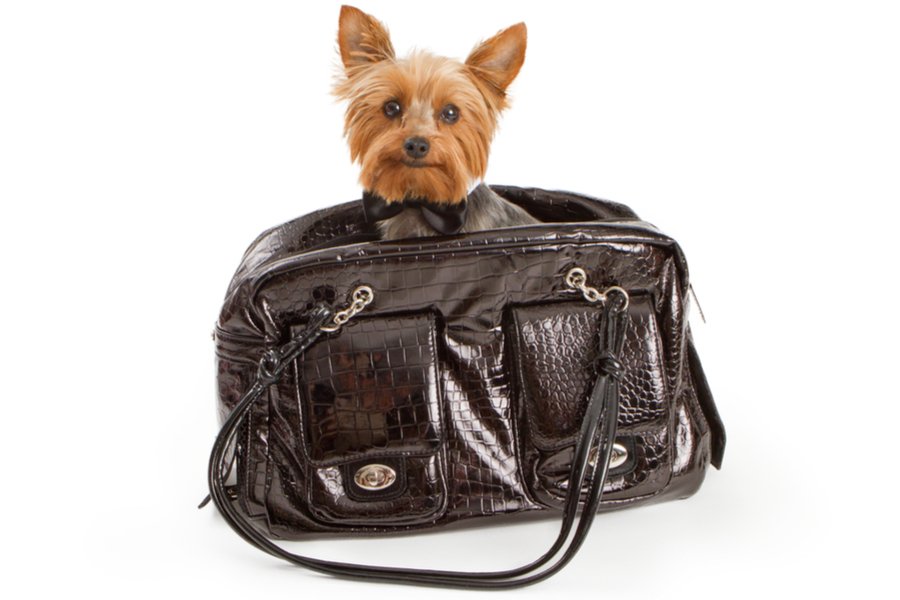
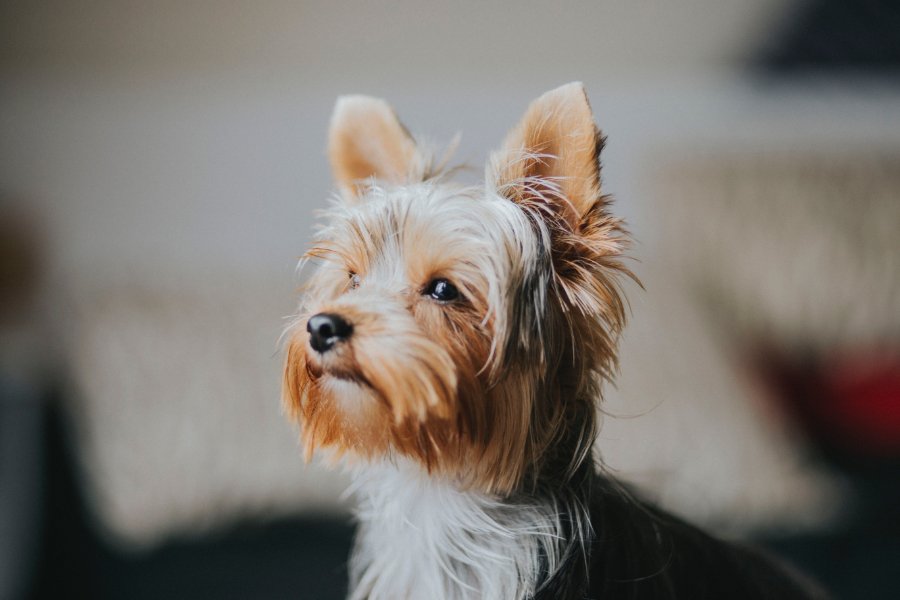
Yorkshire Terriers adore their owners. This, coupled with their high intelligence makes them good candidates for positive reinforcement training. Harsh or sharp corrections can bring out your little Yorkie’s stubborn streak! The Yorkshire Terrier should be socialized to unusual situations, people, and other dogs at an early stage. Expose them to new situations gradually and always in a calm and happy atmosphere. These should be positive experiences.
Bear in mind that Yorkshire Terriers can be a little challenging to housetrain due to their small bladders. However, consistent training and patience will go a long way toward success.
Despite their small size, Yorkshire Terriers can shine at canine activities such as obedience, agility, and rally. Moreover, a lot of Yorkshire Terriers serve in therapy work.
The Yorkshire Terrier’s coat is very similar to human hair so it should be treated with care. If their coat is kept long, it needs to be brushed daily. Keep in mind that the hair on the upper part of their head should be trimmed short or pulled up into a topknot to prevent eye irritation. Yorkshire Terriers will require a bath every 2-4 weeks. Although, you may find that additional baths are needed, particularly when they have been rolling in the mud!
Their ears must be checked weekly for dirt and wax buildup. Use a vet-approved ear cleaner to remove debris and dirt. While cleaning, examine their ears for indications of infections, such as itchiness, inflammation, a foul odour, and swelling. If you notice your Yorkshire Terrier scratching their ears or shaking their head often, it’s best to consult your veterinarian for an ear checkup. If an infection is found, begin treatment immediately because they can be difficult to treat if left for too long.
For their dental health, daily brushing is still the best way to prevent tooth and gum diseases. However, brushing their teeth at least two times a week is enough to remove bacteria and tartar buildup. Use a vet-approved toothpaste and toothbrush that suits your dog.
Tim their nails twice a month or as needed. Make sure to keep their nails short as very long nails can lead to tearing and splitting that can be painful for your Yorkie.
When you groom your Yorkshire Terrier, make sure to examine the body for any signs of infection such as inflammation on the skin, eyes, mouth, nose, ears, and feet, or any swelling, and redness. Your Yorkie’s eyes must be clear and without any redness or discharge. Regular examinations of your dog will help you to keep track of their health and identify any issues early.
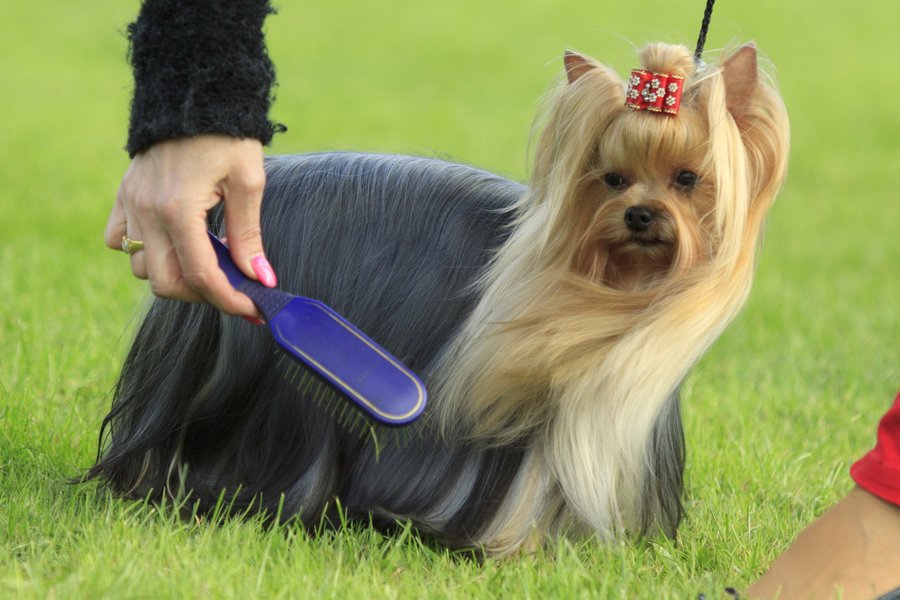
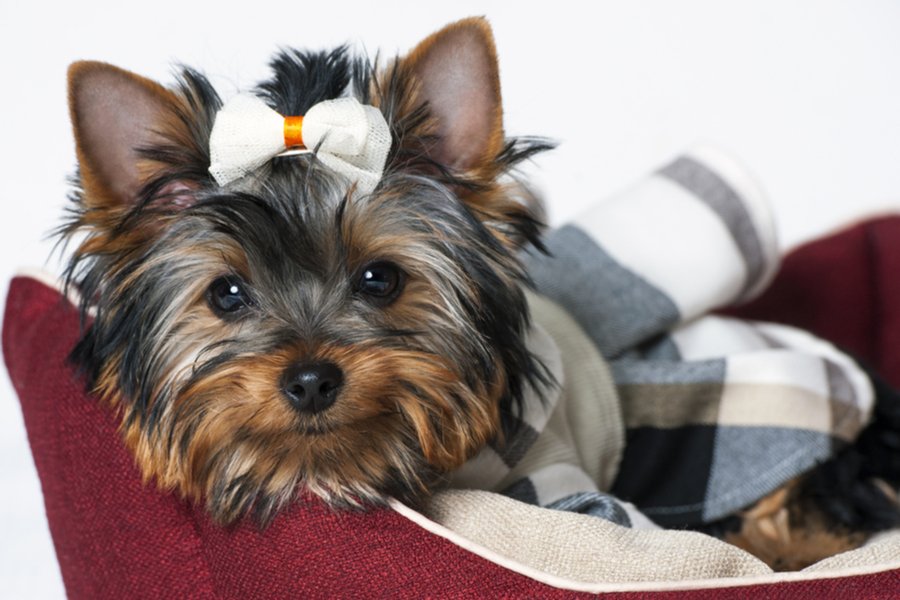
The Yorkshire Terrier’s average life expectancy is 13-16 years when correctly cared for and fed a good quality diet to match their needs.
Like other dog breeds, the Yorkshire Terrier is known to suffer from a few genetic health conditions that are worth knowing about if you are preparing to share your home with one of these dogs. Always purchase a Yorkshire Terrier puppy from a licensed breeder. They will be able to run tests to determine if any underlying health conditions are present.
The following health conditions are commonly seen in Yorkshire Terriers:
Yorkshire Terriers are affectionate and friendly little dogs. However, they are not best suited to homes with very young children. Always supervise any interaction between a Yorkshire Terrier and children to make sure no one gets hurt or injured when playtime gets a bit too rough.
Yorkshire Terriers will tolerate living with cats if they have grown up together. But you need to be cautious around smaller pets because these dogs have a strong hunting instinct. Yorkies generally get along well with other dogs, but they tend to forget how small they are! So, supervision is always best.
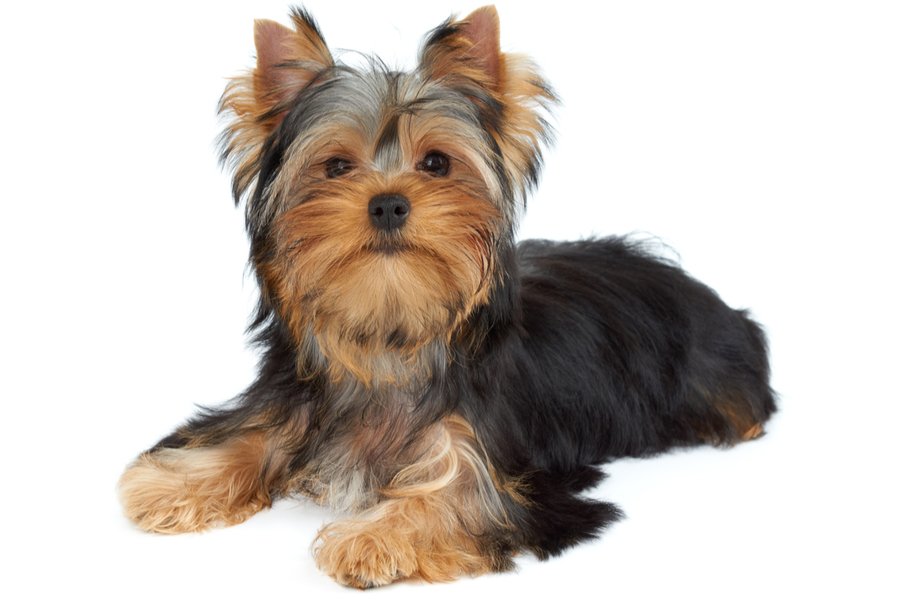
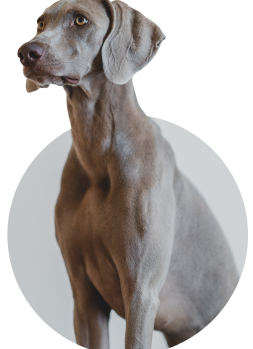
We can connect you with Breeders that are specialized in this particular breed.
See available puppies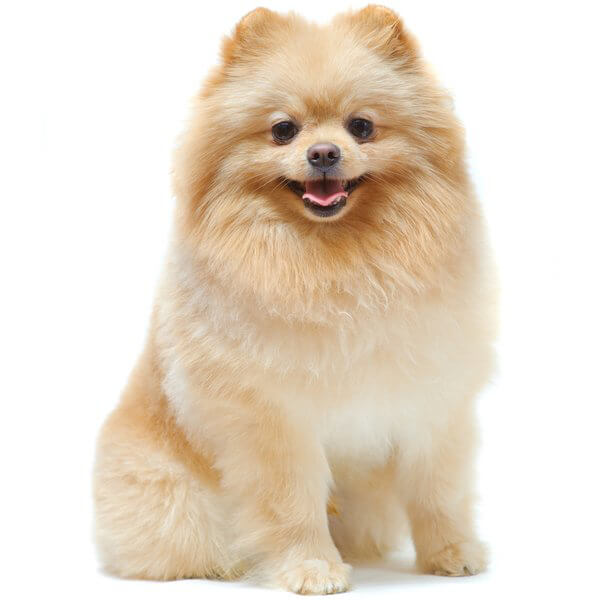
Germany
Size : Small
Coat : Long
Registration : KC, FCI, AKC
Exercise : 30 minutes
Training : Medium
Grooming : Twice a Week
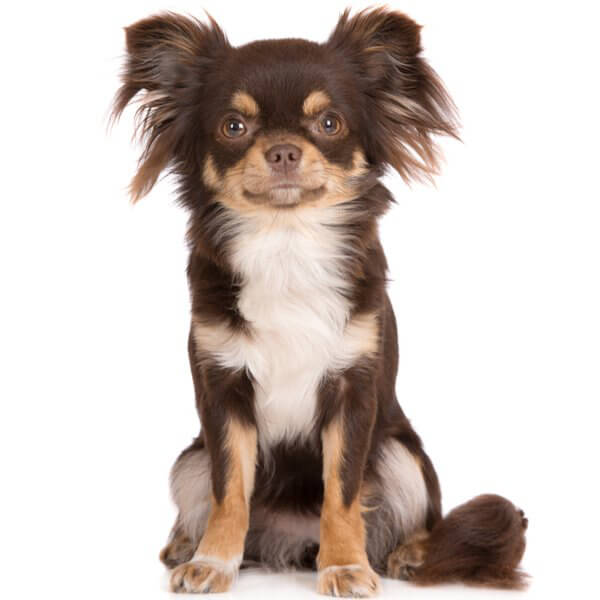
Mexico
Size : Small
Coat : Long
Registration : KC, FCI, AKC
Exercise : 30 minutes
Training : Easy
Grooming : Twice a Week
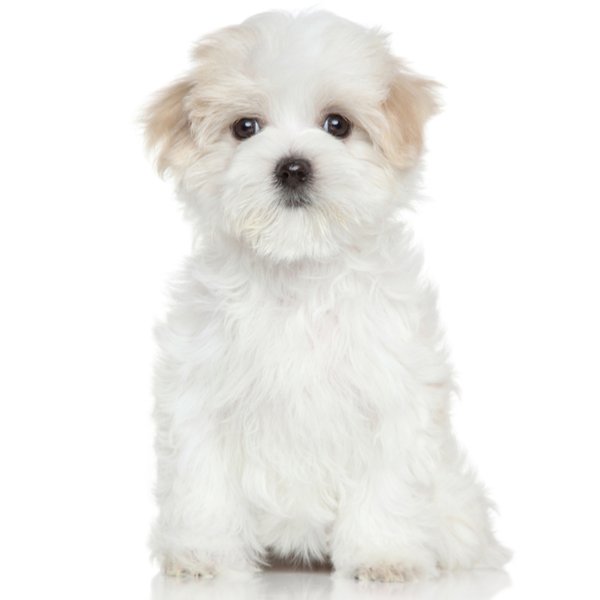
Malta
Size : Small
Coat : Long
Registration : KC, FCI, AKC
Exercise : 30 minutes
Training : Medium
Grooming : Twice a Week
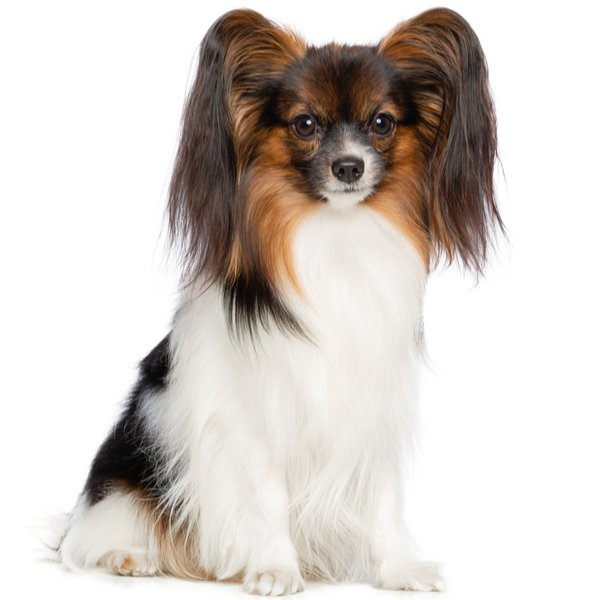
France
Size : Small
Coat : Long
Registration : KC, FCI, AKC
Exercise : 30 minutes
Training : Easy
Grooming : Once a Week


Need some advice?
Whether you're a first time pet owner, an experienced pet owner, a new or long-time breeder, or just curious about pets, we've got you covered!
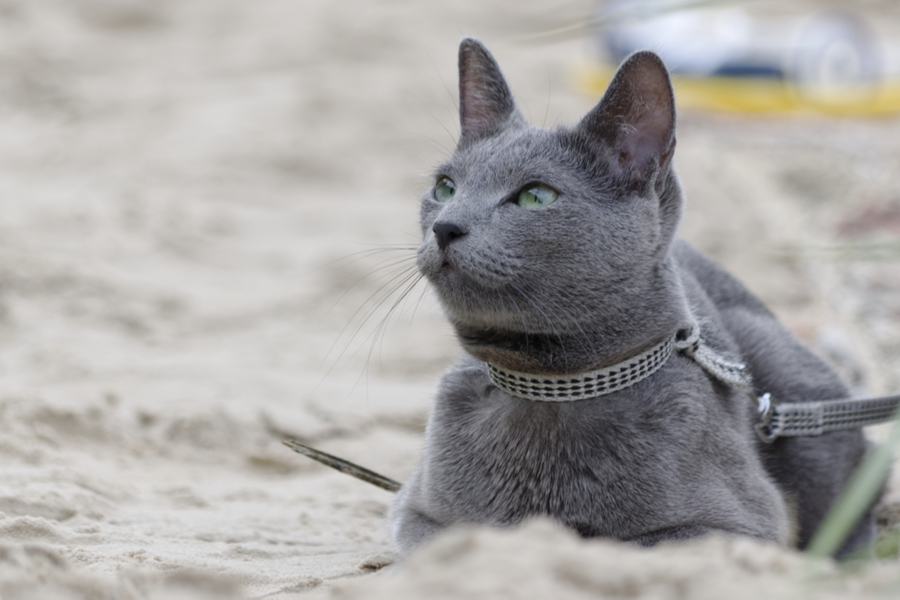
January 17, 2024
What Is The Personality Of Russian Blue Cats?
Russian Blue cats are most known for their distinctive shimmery blue-silver coat and piercing green eyes. However, this breed’s calm and gentle temperament is what makes them shine the most in the feline world.
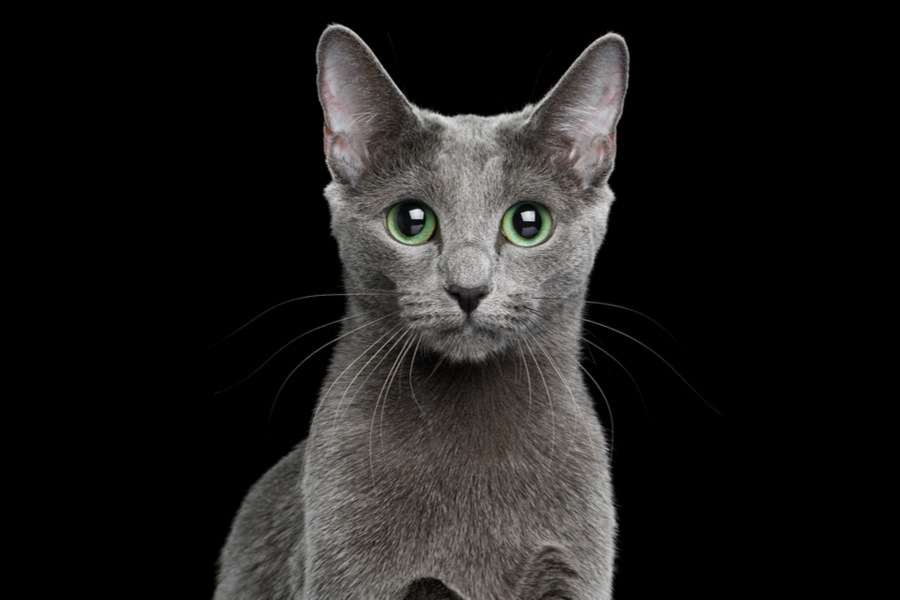
January 17, 2024
10 Facts About Russian Blue Cat Breed
Russian Blues are one of the most aesthetically stunning cat breeds, with a gorgeous plush silvery coat and vibrant green eyes. However, it’s not only their appearance that is beautiful; their nature is too.
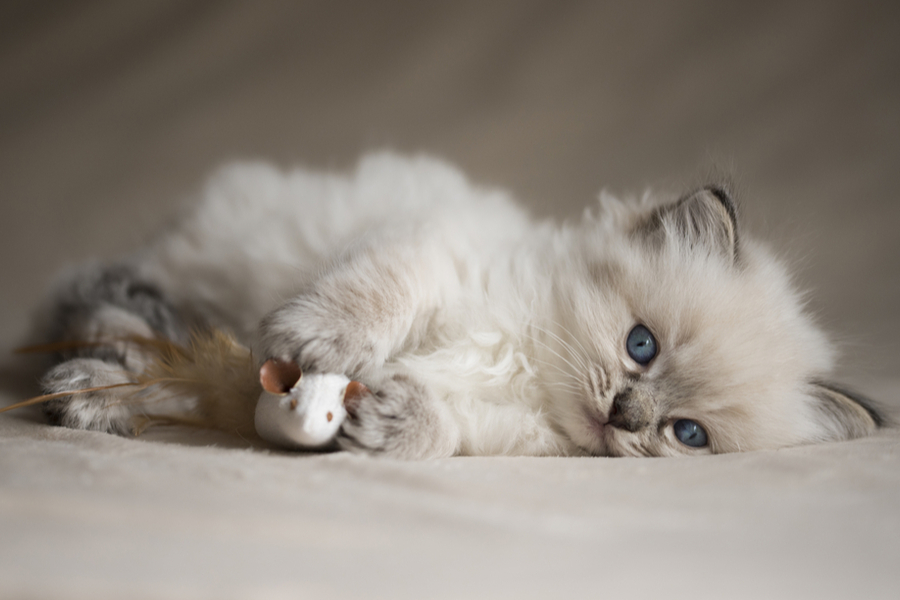
January 17, 2024
How To Choose The Right Cat Breed for You
Cats can make the most fantastic animal companions; they are adorable, friendly, and loving. However, not all felines are created equal. There are many different breeds, of which each has its unique personality traits.
Need some help?
Contact us to speak to our friendly advisor, who will gladly help you find your dream pet!



We are registered in England and Wales under registration number 12568840,
and our registered office is at 58-60 Kensington Church Street, W8 4DB London, England.
© 2023 The Pedigree Paws